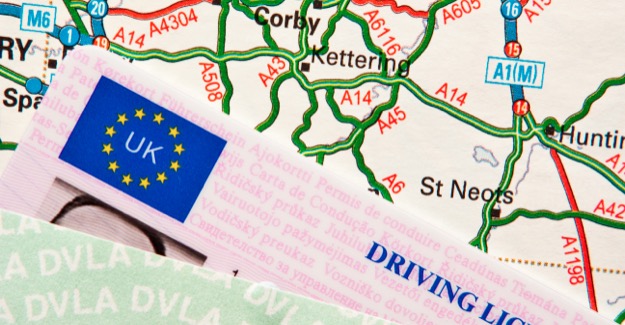Two-thirds support GDL to improve young driver safety
A significant majority of the British public back measures to cut death and injury on the roads through limited restriction on newly qualified young drivers.
An Ipsos MORI survey for the RAC Foundation shows that 68% of adults support, in principle, the introduction of graduated licensing for those drivers aged 24 and under who have just passed their test.
Even amongst young drivers themselves, more support graduated licensing (41%) than oppose it (32%).
Graduated licensing would see limited restrictions on newly qualified young drivers for a period of typically 12 months, thus reducing their exposure to risk as they gain valuable experience on the road.
Today nearly one in eight of all road casualties are hurt or killed in collisions involving a car driver aged 17-19. This is despite this age group making up less than one in sixty of all licensed drivers.
When questioned about specific aspects of graduated licensing, 66% of British adults showed support for limits on the number of passengers newly qualified young drivers could carry and 61% showed support for driving restrictions between midnight and 5 a.m.
Based on the experience of other countries where graduated licensing is in operation, a previous report for the RAC Foundation (by TRL, the Transport Research Laboratory) concluded that if such a system was introduced in Britain about 4,500 fewer people would be hurt in an average year. This includes about 430 people who would otherwise have been killed or seriously injured.
The Ipsos MORI survey also showed that:
- 83% of adults regard young drivers being involved in road accidents as a problem. This is compared to 52% who regard older drivers in accidents as a problem
- 71% of adults agreed that politicians should give more attention to road safety
- 64% of parents say they would ensure their children complied with a graduated licensing system
Professor Stephen Glaister, Director of the RAC Foundation, said:
“Just a few days ago we saw that deaths on Britain’s roads had fallen again, but the rate of decline over recent years has slowed and the issue of young driver safety is one of those matters that must be addressed.
“The evidence from overseas shows there is a way of cutting the amount of death and injury on the road this age-group is involved in. It is called graduated driver licensing. What’s more we now know there is a great deal of support for it amongst the British public.
“What we don’t know is why ministers have not acted. The current government has repeatedly promised a green paper on young driver safety and repeatedly failed to produce it.
“If there were any other area of public health policy where this level of harm was taking place there would be an outcry, yet as a nation we seem to accept what is happening to many of our young people when they get behind the wheel.
“We can debate where the balance lies between imposing restrictions in the interests of safety and maintaining mobility, but graduated licensing should be seen for what it is: a method of preserving long term freedom and health, not curtailing it.”
ENDS
Contacts:
RAC Foundation:
Philip Gomm – Head of External Communications
[email protected] | 020 7747 3445 | 07711 776448 | 020 7389 0601 (ISDN)
Notes to editors:
The RAC Foundation is a transport policy and research organisation that explores the economic, mobility, safety and environmental issues relating to roads and their users. The Foundation publishes independent and authoritative research with which it promotes informed debate and advocates policy in the interest of the responsible motorist.
The RAC Foundation is a registered charity, number 1002705.
The survey is available to download under embargo here.
Some numbers may not add up to 100% due to rounding.
This is the wording to the question which gauged support for two possible aspects of graduated licensing:
“Still thinking about a graduated driving licence, to what extent would you support or oppose the following if they were introduced for newly qualified young drivers aged 24 or under in Britain for the first 12 months after they have passed their test…?
“a) Not allowing them to have more than one passenger aged 15-19 in a car or van they are driving, unless they are accompanied by someone aged 25 or over
“b) Not allowing them to drive between the hours of midnight and 5 a.m., unless they are accompanied by someone aged 25 or over”
This is a link to the TRL report mentioned above:
http://www.racfoundation.org/media-centre/young-driver-crashes-mapping-the-casualties-press
On 26 June 2014 the Department for Transport announced that 1,713 people were killed on Britain’s roads in 2013. This was a 2% drop on 2012.
Techinical note on the survey:
The Ipsos MORI survey for the RAC Foundation measured public attitudes in respect of road safety, two of the ‘intermediate’-stage GDL restrictions – namely, night-time driving and the number and age of passengers – and also about a minimum period of learning to drive. It involved a representative sample of 2,010 British adults aged 16+, with fieldwork undertaken between 7 March and 10 March 2014.
The survey was undertaken online and involved respondents drawn from the Ipsos Access Panel. Data has been weighted to be representative of the known population profile in terms of region, age, gender, working status, tenure, socioeconomic grade and car/van availability in household.



